 |
 |
 |
 |
 |
 |
 |
 |
 |
 |
|
KICP News
|
KICP News, 2010
Surhud More awarded an Otto-Hahn Medal April 19, 2010 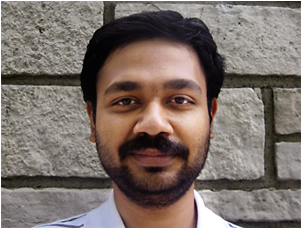 Photo Credit: Anupreeta More Read more >> Related Links: KICP Members: Surhud More KICP graduate students won Nathan Sugarman Awards for Student Research May 10, 2010 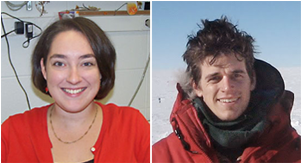 Alison Brizius: For her considerable contributions to the QUIET experiment measuring the polarization of the Cosmic Microwave Background, in particular for her role in the integration of both the 44 GHz and 90 GHz receivers in laboratories in the US and at the site in the Atacama Desert in Chile. Ryan Keisler - For ground-breaking studies of the fine angular scale anisotropy of the Cosmic Microwave Background using the South Pole Telescope. Related Links: KICP Students: Alison Brizius; Ryan Keisler Scientific projects: Q/U Imaging ExperimenT (QUIET); South Pole Telescope (SPT) Announcement of the 2010 Kavli Prize Laureates May 21, 2010  Date: June 3, 2010 - 8:30-10:00 a.m. EST Event: The Norwegian Academy of Science and Letters will announce the 2010 recipients of the Kavli Prizes, which recognize scientists for their seminal advances in astrophysics, nanoscience and neuroscience. A live webcast of the announcements from Oslo, Norway and Prize program from the World Science Festival in New York City will be available at Kavli Foundation and Kavli Prizes. Program in brief Harold Varmus, co-chair of President Obama's Council of Advisors on Science and Technology, presents a keynote address from the World Science Festival in New York City. Announcements of the 2010 Kavli Prize Laureates by the Norwegian Academy of Science and Letters, with presentation moderated by scientist and science writer Jim Al-Khalili. Panel discussion on honored scientific discoveries, moderated by Elizabeth Vargas, ABC News, and featuring acclaimed scientists Antonio Damasio (neuroscience), Mostafa A. El-Sayed (nanoscience) and Kip Thorne (astrophysics). About the Kavli Prizes: The Kavli Prizes recognize scientists for their seminal advances in astrophysics, nanoscience and neuroscience. Consisting of a scroll, medal and cash award of one million dollars, a prize in each field is awarded biennially. Independent of The Kavli Foundation, Kavli Prize recipients are chosen by three prize committees comprised of distinguished international scientists recommended by the Chinese Academy of Sciences, the French Academy of Sciences, the Max Planck Society, the U.S. National Academy of Sciences and The Royal Society. After making their selection for prize recipients, the recommendations of these committees are confirmed by the Norwegian Academy of Science and Letters. Read more >> Names of the 2010 Kavli Prize Winners Announced June 3, 2010 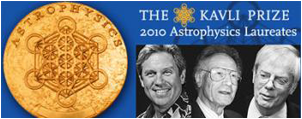 NAMES OF THE 2010 KAVLI PRIZE RECIPIENTS ANNOUNCED June 3, 2010 (Oslo, Norway) - Eight scientists whose discoveries have dramatically expanded human understanding in the fields of astrophysics, nanoscience and neuroscience have been recognized with the award of the million-dollar Kavli Prizes. The laureates were chosen for research that has transformed our knowledge of basic units of matter, laid the foundations for the field of nanotechnology, revealed the molecular basis for the transfer of brain signals and other physiological functions, and made possible the building of telescopes that can see deeper into space and further back in time. These are the second group of recipients of the biennial Kavli Prizes, following the successful launch of the awards in 2008. They were set up to recognize outstanding scientific research, honor highly creative scientists, promote public understanding of scientists and their work and to encourage international scientific cooperation. The Prizes are a partnership of the Norwegian Academy of Science and Letters, The Kavli Foundation and the Norwegian Ministry of Education and Research. Winners have been selected by committees of leading international scientists in the three fields. The prize committees are appointed by the Norwegian Academy of Science and Letters after receiving recommendations from international academies and scientific organizations including the Chinese Academy of Sciences, the French Academy of Sciences, the Max Planck Society of Germany, the US National Academy of Sciences and the UK's Royal Society. Today's announcement was made in Oslo by Nils Chr. Stenseth, President of the Norwegian Academy of Science and Letters, and transmitted live at the opening event of the World Science Festival in New York. The laureates will each receive a scroll, a gold medal and share of the $1,000,000 prize for each of the three fields. The Kavli Prize was initiated by and named after Fred Kavli, founder of The Kavli Foundation, which is dedicated to advancing science for the benefit of humanity, promoting public understanding of scientific research, and supporting scientists and their work. Mr Kavli said: "The Kavli Prizes were established to recognize truly exceptional scientists whose research has fundamentally and profoundly advanced our understanding of astrophysics, nanoscience and neuroscience. With this year's prizes, we continue to honor these pioneering researchers and their discoveries." KAVLI PRIZE IN ASTROPHYSICS Jerry Nelson, of the University of California, Santa Cruz, US, Ray Wilson, formerly of Imperial College London and the European Southern Observatory, and Roger Angel, of the University of Arizona, Tucson, US, share the astrophysics prize for their respective innovations in the field of telescope design that have allowed us glimpses of ever more distant and ancient objects and events in the remote corners of the Universe. Angel created mirrors made of cheap glass and molded them to incorporate a honeycomb pattern of holes, to reduce their weight and increase their rigidity, allowing the building of larger telescopes. Approaching the same problem from a different direction, Wilson developed computer-controlled actuators to make small constant changes to telescope mirror shapes to correct for distortions caused by gravity, wind and temperature, during use. Nelson meanwhile abandoned the idea of using a single large mirror in favor of a system comprising of multiple small hexagonal mirror tiles that are carefully shaped and controlled by computerized actuators to constantly maintain the ideal reflecting surface. KAVLI PRIZE IN NANOSCIENCE The nanoscience prize was awarded jointly to US scientists Donald Eigler, of IBM's Almaden Research Centre, San Jose, California, and Nadrian Seeman, of New York University. Eigler reserved his place in the history of science in 1989 when he became the first person ever to pick up an individual atom and move it precisely to another location, and then went on to make a series of breakthroughs that have helped us to understand some of the most basic units of matter. A decade before Eigler's historic achievement, Seeman invented structural DNA nanotechnology when he realized the building blocks of the genetic blueprint of living organisms could be harnessed to create the raw materials for new, nanoscale circuits, sensors and medical devices. KAVLI PRIZE IN NEUROSCIENCE Three US-based scientists - Thomas Sudhof, of Stanford University School of Medicine; Richard Scheller, of the biotech company Genentech; and James Rothman, of Yale University - are the joint recipients of the neuroscience prize for their work to reveal the precise molecular basis of the transfer of signals between nerve cells in the brain. Scientists had already identified the existence of tiny bubble-like structures called vesicles that release neurotransmitters to allow signals to pass between neurons at synapses. From the late 1980s Sudhof and Scheller cloned and sequenced the genes that encode the proteins that control the functioning of vesicles and their release of neurotransmitters. Sudhof discovered that calcium sensing protein synaptotegmin was the switch for neurotransmitter release. Scheller later provided the first evidence to demonstrate this finding. Rothman took this further by clarifying how vesicles are directed to the points at which they are needed and when to release their contents, not just for those involved in the release of neurotransmitters in the brain but in a wide range of key physiological functions in the body, such as hormone release, insulin secretion and cell division. Nils Chr. Stenseth said: "The Kavli Prizes help enhance the status in the society of science in general and astrophysics, nanoscience and neuroscience in particular. The prize winners furthermore serve as good role models for young people, motivating them to choose a career in science." Complete citations, biographies and other information is available at Kavli Foundation and Kavli Prizes. Media Contact: Anne-Marie Astaad, Norwegian Academy of Science and Letters Office: 011-47-22-12-10-92 Mobile: 011-47-41-56-74-06 Read more >> Congratulations to Dr. Colin Bischoff! June 21, 2010 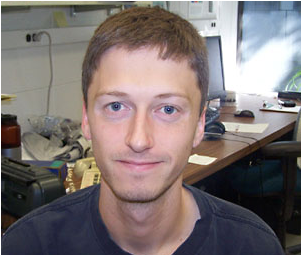 Related Links: KICP Members: Bruce D. Winstein KICP Students: Colin Bischoff Scientific projects: Q/U Imaging ExperimenT (QUIET) KICP director Michael Turner elected Vice President of the American Physical Society September 22, 2010 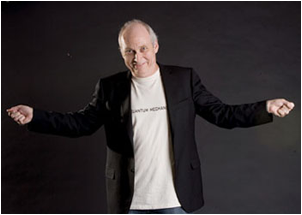 Related Links: KICP Members: Michael S. Turner Open positions: KICP Postdoctoral Research Fellowship Search, 2011 October 12, 2010 The KICP announces the 2011 Postdoctoral Research Fellowship opportunity. Scientists who have or expect a PhD in Physics, Astrophysics or related fields between September 2007 and September 2011 are invited to apply. Successful applicants will be expected to conduct original research in experimental, numerical or theoretical cosmology in an active interdisciplinary environment. To apply please visit the KICP Postdoctoral Research Fellowship website. Congratulations to Dr. Ryan Keisler! November 1, 2010 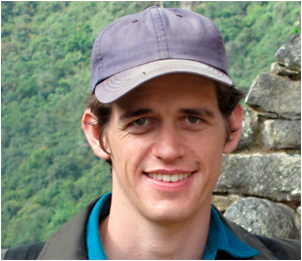 Related Links: KICP Members: John E. Carlstrom KICP Students: Ryan Keisler Scientific projects: South Pole Telescope (SPT) Congratulations to Dr. Matthew Szydagis! December 1, 2010 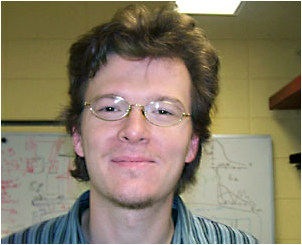 Related Links: KICP Members: Juan I. Collar KICP Students: Matthew Szydagis Scientific projects: COUPP/PICO |





 Overview
Overview